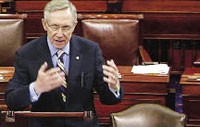Advertisement
Grab your lab coat. Let's get started
Welcome!
Welcome!
Create an account below to get 6 C&EN articles per month, receive newsletters and more - all free.
It seems this is your first time logging in online. Please enter the following information to continue.
As an ACS member you automatically get access to this site. All we need is few more details to create your reading experience.
Not you? Sign in with a different account.
Not you? Sign in with a different account.
ERROR 1
ERROR 1
ERROR 2
ERROR 2
ERROR 2
ERROR 2
ERROR 2
Password and Confirm password must match.
If you have an ACS member number, please enter it here so we can link this account to your membership. (optional)
ERROR 2
ACS values your privacy. By submitting your information, you are gaining access to C&EN and subscribing to our weekly newsletter. We use the information you provide to make your reading experience better, and we will never sell your data to third party members.
Environment
Deep Rifts Over Climate Bill
Senate Hearing: Neither finance committee members nor experts agree on legislation’s economic impact
by Jeff Johnson
November 16, 2009
| A version of this story appeared in
Volume 87, Issue 46

Profound disagreements emerged last week at a Senate Finance Committee hearing over the impact of a climate-change bill on the economy and jobs, signaling a tough road ahead for legislation.
Finance is but one of six Senate committees with jurisdiction over this legislation, but its role could be key. Its legislative charge is tax, trade, and finance, and for a climate-change bill, that role encompasses big-ticket items such as cap-and-trade and international trade provisions. The committee’s actions will affect the price of allowances for carbon dioxide emissions and their financial impact on major industries, such as the chemical industry.
Finance Committee Chairman Max Baucus (D-Mont.) began the hearing by underscoring the need to pass “meaningful, balanced climate-change legislation.” Baucus’ support for legislation was not so clear only a week earlier, when he voted against a climate bill in the Senate Environment & Public Works Committee. He was the lone Democrat to oppose the bill that cleared that committee without a single Republican vote (C&EN, Nov. 9, page 13).
Finance Committee members heard from only one sharply divided panel. First, a union official spoke, predicting big job gains—36,000 total man-years—for a single advanced coal-fired power plant. Next came a nuclear industry representative who estimated that a single nuclear power plant would require 14,360 man-years’ worth of construction and a utility official who said that over the next decade utilities would hire 150,000 construction workers and invest $2 trillion in low-carbon-emission power-generation plants.
Two conservative economists, however, said just the opposite: They estimated that cap-and-trade legislation will bring a net loss of 80,000 U.S. jobs by 2020 and 2.4 million by 2030 and said that the bill will usher in skyrocketing energy prices and reduce U.S. competitiveness.
Like the panel, senators were deeply split. Sen. John Kerry (D-Mass.) said the job loss estimates were “out of whack” with other studies, but Sen. Pat Roberts (R-Kan.), a cap-and-trade opponent, rhetorically asked the panel, “What’s a green job?” And pointing to predictions of high energy prices, he asked the panel why the federal government should be allowed to “pickpocket hard-working Kansans” to cut CO2.
Baucus, however, raised doubts about the value of predictions. Looking to the 1990 Clean Air Act for comparison, he said the final costs of the act were less than half the preimplementation estimates, and the job losses were one-quarter of those projected. The act’s benefits exceed costs by more than 40 to 1, Baucus added.
This was the committee’s fifth climate-change hearing, and more are likely, a staff member said, but when they’ll be held is unclear. Meanwhile, Senate Majority Leader Harry Reid (D-Nev.) said he will meet this week with leaders of all six Senate committees to set a legislative timetable while he cobbles together a bill to take to the Senate floor sometime next year.



Join the conversation
Contact the reporter
Submit a Letter to the Editor for publication
Engage with us on Twitter